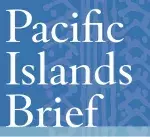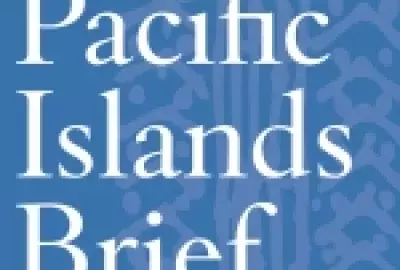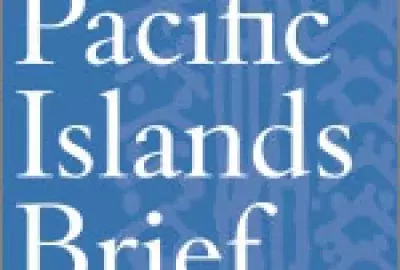
Additional titles in the Pacific Islands Brief series This paper analyzes the 2014 general election in the Republic of Fiji in which Interim Prime Minister Rear Admiral (Retired) Josaia Voreqe (Frank) Bainimarama, who led the 2006 coup, won. Bainimarama's FijiFirst (FF) party, gained a substantial parliamentary majority in the 2014 elections. Fiji became independent in 1970. Since then, it has experienced four coups—two in 1987, and one in both 2000 and 2006—and promulgated four constitutions in 1970, 1990, 1997 and 2013. Fiji has been described as having a "coup culture." It held a general election on September 17, 2014, the first since the 2006 coup. The Multinational Observer Group (MOG) in their initial statement recognized that "(a) the outcome of the 2014 Fijian Election is on track 'to broadly represent the will of the Fijian Voters'; (b) the conditions were in place for Fijians to exercise their right to vote freely." Many governments and international organizations around the globe welcomed the implementation of the elections, including Australia, New Zealand, Japan, France, the United States, the European Union, the Commonwealth, the Pacific Islands Forum and the Melanesian Spearhead Group. If asked whether Prime Minister Bainimarama won the 2014 general elections in a credible manner, this author argues in the affirmative. Despite the fact that he initially assumed the prime minister's office through use of force, he is now the elected Prime Minister of Fiji. He freely won the general election. His FF party received 59.2% of valid votes. The next general elections in Fiji will be most interesting to watch. Based on their experiences in the 2014 general election, political parties will likely be able to better adjust their political strategies. The 2014 general election should therefore be seen as only a first step for the people of Fiji to broaden and deepen their democratic system. |
Additional titles in the Pacific Islands Brief series This paper analyzes the 2014 general election in the Republic of Fiji in which Interim Prime Minister Rear Admiral (Retired) Josaia Voreqe (Frank) Bainimarama, who led the 2006 coup, won. Bainimarama's FijiFirst (FF) party, gained a substantial parliamentary majority in the 2014 elections. Fiji became independent in 1970. Since then, it has experienced four coups—two in 1987, and one in both 2000 and 2006—and promulgated four constitutions in 1970, 1990, 1997 and 2013. Fiji has been described as having a "coup culture." It held a general election on September 17, 2014, the first since the 2006 coup. The Multinational Observer Group (MOG) in their initial statement recognized that "(a) the outcome of the 2014 Fijian Election is on track 'to broadly represent the will of the Fijian Voters'; (b) the conditions were in place for Fijians to exercise their right to vote freely." Many governments and international organizations around the globe welcomed the implementation of the elections, including Australia, New Zealand, Japan, France, the United States, the European Union, the Commonwealth, the Pacific Islands Forum and the Melanesian Spearhead Group. If asked whether Prime Minister Bainimarama won the 2014 general elections in a credible manner, this author argues in the affirmative. Despite the fact that he initially assumed the prime minister's office through use of force, he is now the elected Prime Minister of Fiji. He freely won the general election. His FF party received 59.2% of valid votes. The next general elections in Fiji will be most interesting to watch. Based on their experiences in the 2014 general election, political parties will likely be able to better adjust their political strategies. The 2014 general election should therefore be seen as only a first step for the people of Fiji to broaden and deepen their democratic system. |






